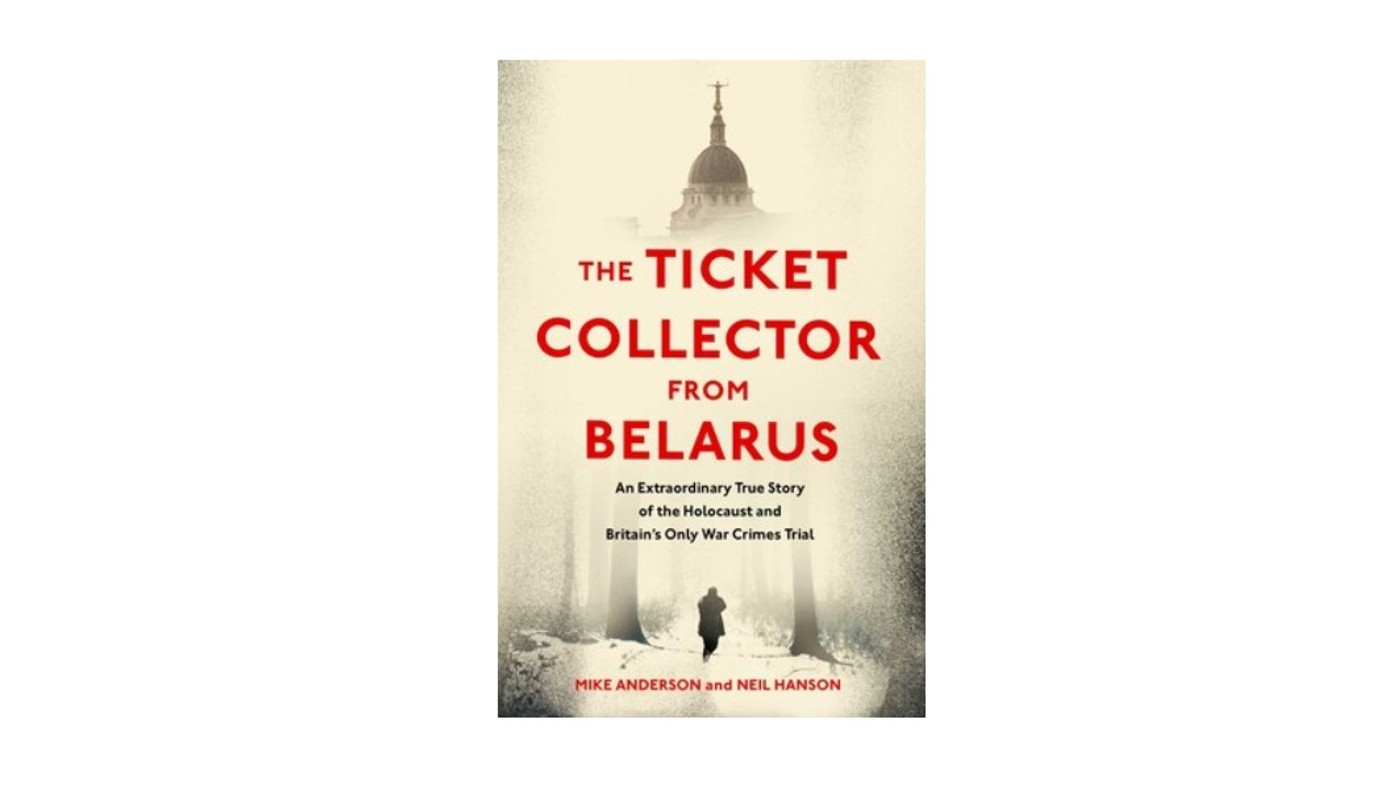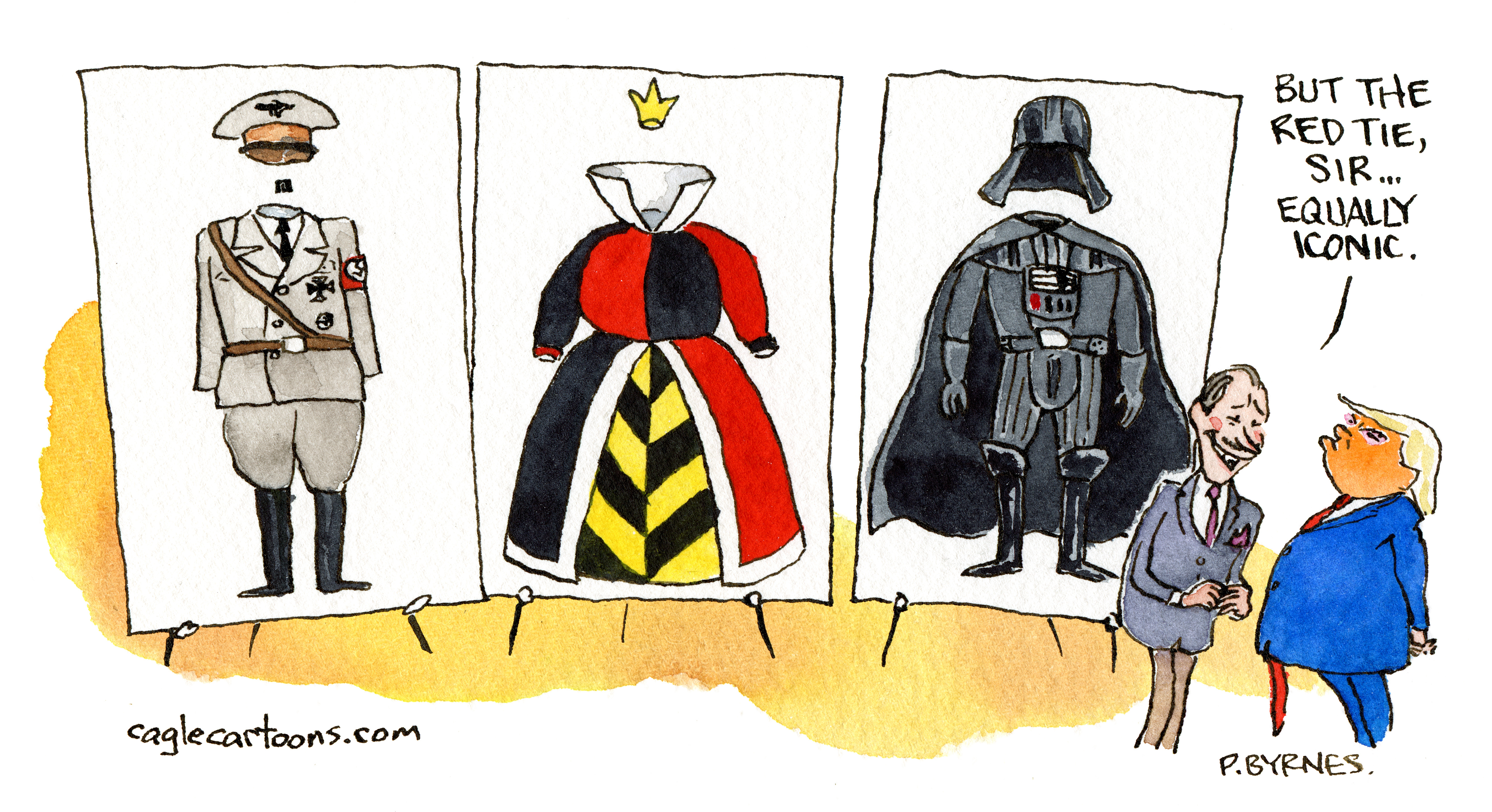The Ticket Collector from Belarus: a ‘heart-rending tale’
Mike Anderson and Neil Hanson delve into the early life of the prolific war criminal Anthony Sawoniuk

“On 21 March 1996, the residents of a south London council estate were startled to see police cars outside the home of an elderly resident,” said Kathryn Hughes in The Sunday Times. They were there to question Anthony Sawoniuk, a 75-year-old known as “Tony the Pole” who had “spent his working life at British Rail, mostly as a ticket collector at London Bridge”.
Sawoniuk’s neighbours were soon to learn that he was a prolific war criminal, who had murdered scores of Jews in the Polish town of Domachevo (now part of Belarus) in the final months of 1942. In 1999, at the Old Bailey, Sawoniuk became the “first and only” person to stand trial in the UK for war crimes. In this “brilliantly gripping mix of true crime and narrative history”, Mike Anderson and Neil Hanson delve into his early life, and examine how he was brought to justice.
Born in Domachevo in 1921, the illegitimate son of the school cleaner, Sawoniuk was a loner as a child and grew into a “barely literate bully” of a young man, said Caroline Moorehead in The Spectator. When Nazi Einsatzgruppen – SS death squads – entered the town in 1942, they recruited local auxiliaries to help with the rounding up and killing of Jews.
Subscribe to The Week
Escape your echo chamber. Get the facts behind the news, plus analysis from multiple perspectives.

Sign up for The Week's Free Newsletters
From our morning news briefing to a weekly Good News Newsletter, get the best of The Week delivered directly to your inbox.
From our morning news briefing to a weekly Good News Newsletter, get the best of The Week delivered directly to your inbox.
None approached the task with more relish than “Little Andy”, said David Aaronovitch in The Times. A childhood friend recalled him forcing 15 women to strip before shooting them in the back of the head. He killed 54 children in the local Jewish orphanage. Sawoniuk later joined a Waffen SS unit, but when it became clear which way the War was heading, he deserted the Nazis and switched to the Allies’ side. In 1946, he made his way to Britain.
After the War, there was little enthusiasm in Britain for prosecuting “minor players” in the Holocaust, said Saul David in The Daily Telegraph. But that changed in the late 1980s, when the Soviet Union released a list of 97 suspected Nazi war criminals believed to be domiciled in the UK.
Prosecuting Sawoniuk wasn’t easy, since the sole surviving witnesses to his crimes were elderly, and living in Belarus; the trial “hung in the balance to the end”. Sawoniuk insisted in his idiosyncratic Cockney-Polish that he was innocent, that “nobody was shooted”.
But he was eventually found guilty of murder, and died in prison six years later. His conviction was “an extraordinary moment in British legal history” – though today it is largely forgotten. Anderson and Hanson deserve praise for their “sensitive” account of a “heart-rending tale”.
Simon & Schuster 384pp £20; The Week Bookshop £15.99

The Week Bookshop
To order this title or any other book in print, visit theweekbookshop.co.uk, or speak to a bookseller on 020-3176 3835. Opening times: Monday to Saturday 9am-5.30pm and Sunday 10am-4pm.
Sign up for Today's Best Articles in your inbox
A free daily email with the biggest news stories of the day – and the best features from TheWeek.com
-
 May 26 editorial cartoons
May 26 editorial cartoonsCartoons Monday's political cartoons feature Donald Trump's red tie, Hunter Biden's crypto lament, and one meaning of Memorial Day
-
 3 tips for coping with financial stress
3 tips for coping with financial stressThe explainer Feel more at peace in an unpredictable economy
-
 Sudoku medium: May 26, 2025
Sudoku medium: May 26, 2025The Week's daily medium sudoku puzzle
-
 The cinematic beauty of Sicily's Aeolian Islands
The cinematic beauty of Sicily's Aeolian IslandsThe Week Recommends These scattered islands have inspired film directors since the 1950s
-
 6 lounge-ready homes with conversation pits
6 lounge-ready homes with conversation pitsFeature Featuring a terrazzo-flanked pit in California and a fire-side pit in Nevada
-
 Is a River Alive?: a 'powerful synthesis of literature, activism and ethics'
Is a River Alive?: a 'powerful synthesis of literature, activism and ethics'The Week Recommends Robert Macfarlane's latest book centres on his journeys to four river systems around the world
-
 Good One: an 'intensely compelling' coming-of-age tale
Good One: an 'intensely compelling' coming-of-age taleThe Week Recommends India Donaldson's 'quietly devastating' debut feature about a teenage girl's life-changing camping trip
-
 The best lemon pepper wings in Atlanta
The best lemon pepper wings in AtlantaFeature Marinated turkey wings, a Korean barbecue sauce combo and an off-menu staple
-
 Film reviews: Friendship and Fight or Flight
Film reviews: Friendship and Fight or FlightFeature An awkward dad unravels after he's unfriended and Josh Hartnett attempts a John Wick sidestep
-
 Art review: Ai, Rebel: The Art and Activism of Ai Weiwei
Art review: Ai, Rebel: The Art and Activism of Ai WeiweiFeature Seattle Art Museum, through Sept. 7
-
 Book reviews: 'Second Life: Having a Child in the Digital Age' and 'Mark Twain'
Book reviews: 'Second Life: Having a Child in the Digital Age' and 'Mark Twain'Feature Navigating pregnancy in the digital age and an exploration of Mark Twain's private life